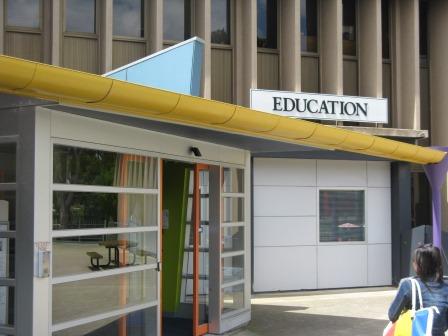Monash Faculty of Education looks at class sizes
Small classes, especially in the first four years of school, can have an important and lasting impact on student achievement, a new report shows.

In a review of over 100 papers from 1979–2014, education expert Dr David Zyngier from Monash University’s Faculty of Education looked at whether the conclusions reached on the effect of smaller class sizes still hold true today.
“The question of class size continues to attract the attention of educational policymakers and researchers alike,” Dr Zyngier said. “Many argue that much of Australia’s increased expenditure on education in the last thirty years has been ‘wasted’ on efforts to reduce class sizes because that extra funding has not led to improved academic results.”
However Dr Zyngier found that current policy advice is based on ‘cherry picking’ of flawed research evidence from a US conservative think tank and that a range of independent studies throws doubt on that argument.
His review drew on a wide range of studies from Australia and other similar education systems including non-English speaking countries of Europe, as well as England, Canada and New Zealand. All assessed how class size affected academic results. Dr Zyngier also looked at whether other variables such as teaching methods were taken into account in the results.
The findings suggest that smaller class sizes in the first four years of school can have a significant and lasting impact on student achievement. This appears to be especially important for children from communities that are culturally, linguistically or economically disenfranchised.
“Smaller classes in the early years can lift a child’s academic performance right through to Year 12 and even into tertiary study and employment,” Dr Zyngier said.
“It is also beneficial to have smaller numbers for specialist classes in such fields as numeracy and literacy.”
Dr Zyngier said the cost of keeping classes small had to be weighed against the long-term cost to the community of less-effective education.
There was also a need for a new approach to teacher development, he said.
“Currently teaching methodology is based on large classes, which call for a very different approach to teaching smaller groups,” Dr Zyngier said.
“Targeted funding for specific lessons and schools, combined with professional development of teachers, would address the inequality of schooling and help redress the damaging effect that poverty, violence, inadequate child care and other factors have on our children’s learning,” Dr Zyngier said.
Program: Master of Teaching (Primary or Secondary)
Location: Melbourne, Victoria
Semester intake: March 2015
Duration: 2 years
Application deadline: Although there is no strict application deadline for either of these programs, it is recommended that students apply at least three months prior to the program start date. Doing so will provide students with a sufficient amount of time to complete the assessment and pre-departure process.
Apply now to Monash University Teachers College!
*

































Ask A Question
Ask us about your program of interest, or if you have a question about our services.
CONTACT US TODAY